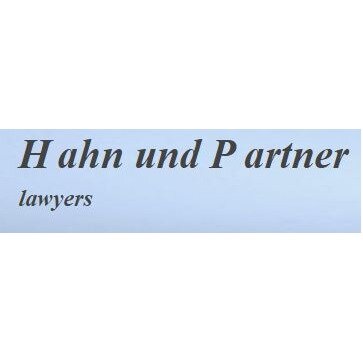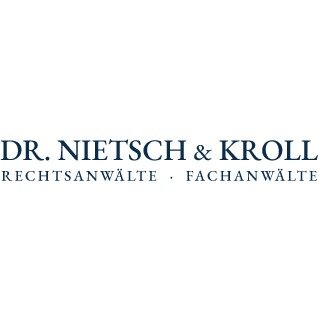Best Real Estate Due Diligence Lawyers in Hamburg
Share your needs with us, get contacted by law firms.
Free. Takes 2 min.
Free Guide to Hiring a Real Estate Lawyer
List of the best lawyers in Hamburg, Germany
About Real Estate Due Diligence Law in Hamburg, Germany
Real Estate Due Diligence refers to the comprehensive investigation and assessment of a property before entering into a real estate transaction. In Hamburg, Germany, Real Estate Due Diligence is governed by various legal provisions aimed at protecting the interests of buyers, sellers, and investors.
Why You May Need a Lawyer
There are several situations where seeking legal help in Real Estate Due Diligence in Hamburg is advisable:
- When purchasing or selling real estate
- When leasing or renting property
- When investing in real estate projects
- When dealing with property disputes or litigation
- When navigating complex zoning and land use regulations
Local Laws Overview
Key aspects of local laws relevant to Real Estate Due Diligence in Hamburg:
- Property Registration: Real estate transactions must be registered with the Land Registry Office (Grundbuchamt) to establish legal ownership.
- Building Codes and Regulations: Compliance with building codes, permits, and zoning regulations is essential to ensure property suitability and avoid legal issues.
- Environmental Regulations: Environmental impact assessments and compliance with environmental regulations are necessary to identify any potential contamination or liabilities associated with the property.
- Lease and Rental Laws: Hamburg has specific regulations governing leases, including rent control, termination rights, and tenant protections, which may impact real estate transactions.
- Contractual Obligations: Real estate contracts should be carefully drafted and reviewed to ensure both parties' rights and obligations are adequately protected.
Frequently Asked Questions
Q: What is the purpose of Real Estate Due Diligence?
A: Real Estate Due Diligence allows parties to assess the legal, financial, and physical aspects of a property to minimize risks, ensure transparency, and make informed decisions.
Q: What documents should I review during Real Estate Due Diligence?
A: Key documents to review include property deeds, mortgage documents, leases, zoning documents, environmental reports, tax records, and any relevant contracts or permits.
Q: Is a property inspection necessary during Due Diligence?
A: Yes, a thorough inspection is recommended to identify any structural issues, maintenance needs, or potential problems that may affect the value or suitability of the property.
Q: Can I conduct Due Diligence on my own?
A: While it is possible to conduct certain aspects of Due Diligence independently, consulting with an experienced real estate lawyer is highly advisable to ensure all legal requirements are met and to avoid potential pitfalls.
Q: How long does Real Estate Due Diligence typically take?
A: The duration of Due Diligence can vary depending on the complexity of the property and the extent of investigation required. It usually takes several weeks to complete.
Additional Resources
For further information and assistance with Real Estate Due Diligence, you may find the following resources helpful:
- Hamburg Chamber of Real Estate (Handelskammer Hamburg)
- Hamburg Land Registry Office (Grundbuchamt)
- German Association of Real Estate Experts (Bundesverband Deutscher Sachverständiger und Fachgutachter)
Next Steps
If you require legal advice or assistance with Real Estate Due Diligence in Hamburg, it is recommended to:
- Research and gather all relevant documentation pertaining to the property
- Consult with an experienced real estate lawyer specializing in Due Diligence
- Discuss your specific needs, concerns, and objectives related to the real estate transaction
- Follow the guidance of your lawyer throughout the Due Diligence process
- Appropriately document any agreements or contracts reached during the Due Diligence phase
Lawzana helps you find the best lawyers and law firms in Hamburg through a curated and pre-screened list of qualified legal professionals. Our platform offers rankings and detailed profiles of attorneys and law firms, allowing you to compare based on practice areas, including Real Estate Due Diligence, experience, and client feedback.
Each profile includes a description of the firm's areas of practice, client reviews, team members and partners, year of establishment, spoken languages, office locations, contact information, social media presence, and any published articles or resources. Most firms on our platform speak English and are experienced in both local and international legal matters.
Get a quote from top-rated law firms in Hamburg, Germany — quickly, securely, and without unnecessary hassle.
Disclaimer:
The information provided on this page is for general informational purposes only and does not constitute legal advice. While we strive to ensure the accuracy and relevance of the content, legal information may change over time, and interpretations of the law can vary. You should always consult with a qualified legal professional for advice specific to your situation.
We disclaim all liability for actions taken or not taken based on the content of this page. If you believe any information is incorrect or outdated, please contact us, and we will review and update it where appropriate.













